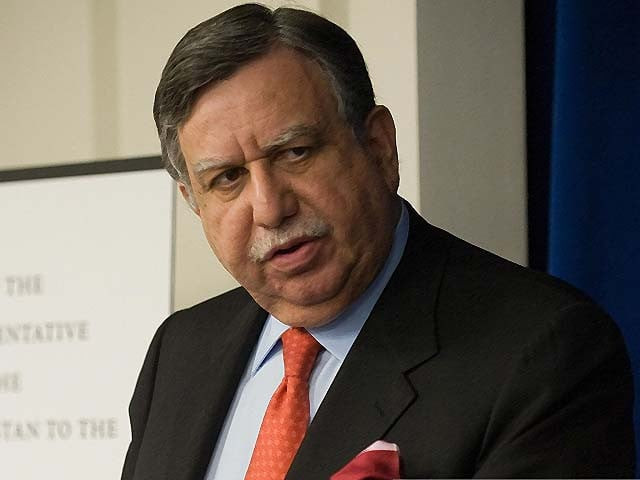Govt okays Rs20.7b for KCR-linked project
ECNEC gives nod to scheme envisaging construction of flyovers and underpasses along route of circular railway

The government on Friday approved a sum of Rs20.7 billion for a project to ensure smooth traffic flow along the unconstructed Karachi Circular Railway (KCR) – a scheme that still remains at an infancy stage and would take time before it hits the ground.
The Executive Committee of the National Economic Council (ECNEC) gave its nod to a summary presented by the Planning Commission for the construction of an infrastructure for the elimination of level crossings for the loop section of the KCR, according to a statement issued by the finance ministry.
Finance Minister Shaukat Tarin chaired the ECNEC meeting that took up the single-point agenda of construction of flyovers along the KCR route of 29 kilometres.
At the scheduled meeting time, there were only two ECNEC cabinet members present, including Tarin.
The finance minister briefly postponed the meeting before reconvening it. However, later too, the attendance remained thin and the Cabinet Division had to seek the consent of at least one minister before starting proceedings.
Read ECNEC approves Rs20.7b infrastructure project for KCR: Umar
Sources said Tarin blamed the planning ministry for the low attendance. However, the planning secretary refused to take any responsibility, saying it was the job of the Cabinet Division to complete the quorum.
This happened despite the fact that Tarin had earlier warned other ministers to attend the meetings regularly and in time or their memberships would be terminated.
The contract for the execution of the Rs20.7 billion project was given to the Frontier Works Organisation (FWO) on the instructions of the Supreme Court without following the competitive bidding process.
The project will be sponsored and executed by the railways ministry.
It envisages the construction of flyovers and underpasses along the route of the KCR for the elimination of 22 level crossings.
The rationalised cost of the project is Rs20.7 billion on a cost-sharing basis, the finance ministry said.
Planning Minister Asad Umar said the KCR infrastructure project would be inaugurated next week with Prime Minister Imran Khan as the chief guest.
The previous PML-N government had planned to construct the KCR under the China-Pakistan Economic Corridor (CPEC) but now the ruling PTI decided to build it through private sector financing.
PM Imran’s government has made the project part of the Rs736 billion Karachi package.
The government has decided to use three financing modes -- the Public Sector Development Programme (PSDP), the Supreme Court funds and the Public-Private Partnership (PPP) for delivering the Karachi package projects.
The KCR costing Rs300 billion would be largely built with the help of the private sector on a build-operate and transfer (BOT) mode in addition to using Rs50 billion funds that a real estate developer was depositing with the SC.
During the 10th meeting of the Joint Cooperation Committee of the CPEC, Pakistan urged China to ask its companies to participate in the bidding process for the construction of the project on BOT mode.
An official of the planning ministry said the Public-Private Partnership Authority was conducting the technical feasibility study of the project.
The Supreme Court in March 2020 had ordered the revival for the KCR and the construction of infrastructure of underpasses and overhead bridges at the level crossings to ensure that the road traffic was not affected by the project.
In August last year, the SC instructed to give the project to the FWO and directed that the project should be completed within six months of commencement of construction work.
Read more Sindh govt commits Rs6b for KCR funding
In May this year, the FWO submitted a Rs4.9 billion PC-I of the project for the first phase and in July submitted Rs11.5 billion PC-I for the second phase of the project.
The scheme will be completed in three phases over a period of 23 months, according to the project documents.
The Sindh government would provide Rs6 billion upfront payments in line with the apex court’s instructions.
The Sindh chief minister had instructed that the fencing wall of the project should be built by the Pakistan Railways and its cost had been estimated at Rs1.3 billion.
The ECNEC also approved a recommendation put forth by the Planning Commission that the Central Development Working Party (CDWP) would be authorised to consider the projects where executive committee had decided to approve them with the direction of rationalisation of the cost.
If the rationalisation exercise results in a downward revision in cost, such projects would be accorded approval by the CDWP. The status report would be submitted for perusal of the ECNEC chairman.
In case of an upward cost revision, the project would be resubmitted before ECNEC for approval. The CDWP has a mandate to approve projects costing up to Rs10 billion.


















COMMENTS
Comments are moderated and generally will be posted if they are on-topic and not abusive.
For more information, please see our Comments FAQ